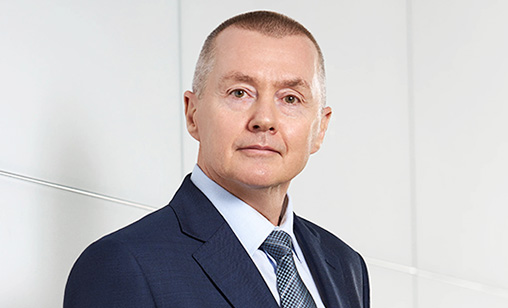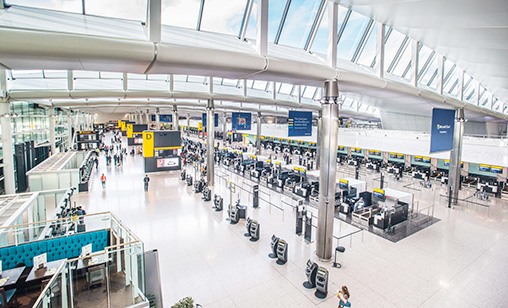Addendum
IATA boss warns providers against opportunistic fee hikes
April 1st 2021
It has not taken new International Air Transport Association (IATA) director general, Willie Walsh, long to demonstrate he means business. Read More » While continuing to lobby for relaxed border and quarantine restrictions as well as preparing for recovery from the pandemic, he made it clear he has concerns about some sectors of the industry when he said airlines “will not accept monopolistic type behaviours from key elements of the value chain if they seek to recover their losses of 2020 as we get going again”.
Nor did he leave anyone in doubt about who he had in mind. Speaking during his first online press briefing since taking charge at IATA on April 1, the former Aer Lingus, British Airways and IAG (International Airlines Group) boss said he was looking at some airports and air traffic control providers.
 |
“We need to be very careful that others don’t try and exploit a weak airline industry when seeking to recover their losses from last year. Principally, I am looking at some airports and air traffic control suppliers who already have shown evidence of their desire to recover the money they lost in 2020. It’s not going to be possible for airlines to do that. It should not be possible for suppliers in the industry to do that,” he said.
Walsh added airports such as London Heathrow had clearly demonstrated they wanted to recover lost revenue. “We expect the regulator in the UK to be very tough, to take a stand, particularly where it [London Heathrow] is trying to recover money spent on the third runway - that was not really supported by the industry. It was something Heathrow wanted to do,” he said.
Also, IATA is seeing evidence air traffic control suppliers have not taken the opportunity to improve the efficiency of their operations during the crisis. “So, we see evidence some of them are trying to recover costs. In effect, some of these guys just act as monopoly suppliers. There is no alternative,” Walsh said.
“We will be very strong and aggressive in opposing this. We will work with our member airlines to ensure these suppliers do not take advantage of the situation. And we will expect economic regulators and governments to step in to ensure this behaviour is clearly not accepted and is not to be tolerated.”
But Walsh had a pat on the back for one sector of the industry - aircraft leasing. “Generally, the leasing industry is competitive. There are lots of options out there for most if not all airlines and we continue to see evidence of that,” he said.
“In many cases, lessors have been part of the solution to the cash crisis airlines faced in 2020. There has been a lot of sale and leaseback activity going on. In most cases they have been, from personal experience, at rates I would consider to be normal or near normal. I don’t have concerns about the leasing industry at this stage.”
 |
Walsh said his priorities were the same as those of his predecessor, Alexandre de Juniac. Apart from its work with governments, the association is focused on acceptance of its Travel Pass. “It is important the IATA Travel Pass is introduced and accepted. We need to offer the customer a digitized option to travel,” he said.
“The concept of self-service check-in, on-line or using apps, has become a permanent feature of the business so we need to get back to facilitating that.”
Walsh believes the recovery, when it occurs, will happen very quickly. “But we do have to recognize it is not going to be easy to get back to the same level. A lot of aircraft that were in operation in 2019 have been retired. I don’t see those aircraft coming back into service. I see an industry that will be smaller in the short term as it gradually recovers,” he said.
“Clearly, some airlines will take advantage of the recovery, but in most cases where airlines have restructured it is because it had to happen. Without it, they would be out of business. Rising fuel prices will be a challenge. So we will see cash burn even as the industry begins to recover.”
Walsh, the first former pilot to head IATA, did not think his cockpit experience gave him any particular advantage in leading the organization. “One of the things it did for me was make me more focused on decision-making. As a pilot, particularly as a captain, you must be prepared to take decisions. You have to assess information quickly. You have to manage risk and take decisions in a structured way,” he said.
“It is something every leader needs to do. Having done that as a pilot has certainly made it easier for me to embrace difficult challenges and make decisions quickly when needed as a CEO. I would expect to do the same in my role as director general.”